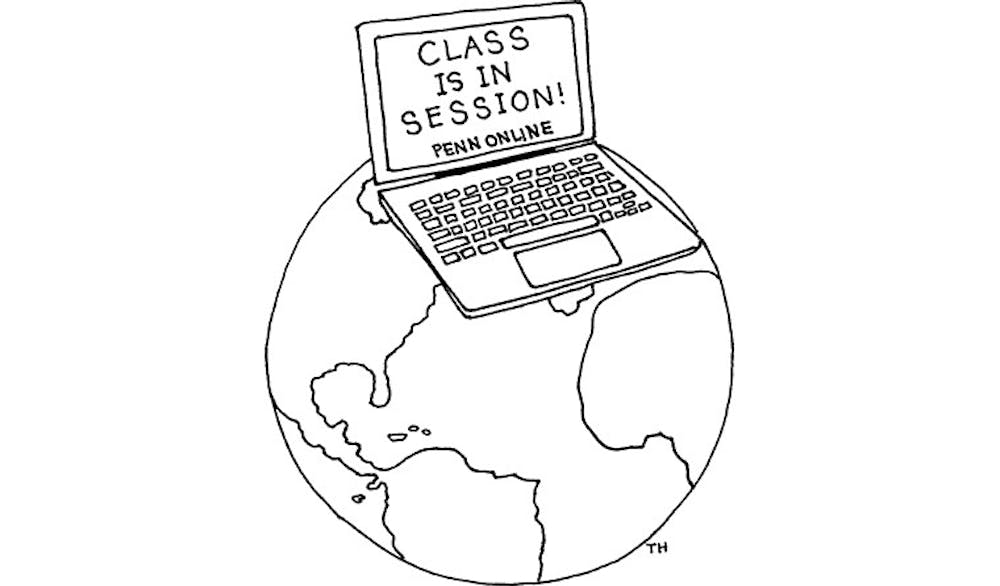It was 1:27 p.m. on a sunny summer afternoon after a long hike on California’s Pacific Crest Trail—my off–day from my internship at the global nonprofit Village Enterprise. And it was time to go to class.
I logged onto Canvas and clicked the link to enter my live lecture session, and within seconds I was transported, miles away, to my home–away–from–home in Philadelphia. The professor appeared on my screen, a smile on his face as he greeted me and my 30–odd classmates, who were already typing ravenously in the chat room. Four TAs jumped in and out of the discussions, guiding the conversation toward clarity as we reviewed the week’s reading of Oedipus the King, Agamemnon, Eumenides and The Bacchae. Welcome to Greek and Roman Mythology, one of Penn’s 30 for–credit online courses offered every academic year and summer.
I have never been one to champion superfluous technology like Snapchat, Instagram and Twitter. Upon hearing about Penn’s online courses, my initial reaction was reproach—another channel for technology to inadequately usurp the roles of social interaction. Yet, my curiosity, paired with the lure of fulfilling dreaded sector requirements in a six–week period, quickly overcame my reserve.
What I found was far from what I expected. The technology did not distance me from my classmates and teachers—rather, it bridged the gap. It didn’t stunt my learning process or pose difficulties in getting my questions answered. Perhaps more effectively than in a regular classroom, I was able to watch lectures on my own time and at my own pace, answering worksheets that kept me on track along the way. Each week, a short writing assignment was due (to which my group of seven or so students responded), a live lecture was held on the computer (on which attendance was taken) and a constant stream of email communication flooded my online account (at the now normalized hyperactive pace). Not only was I exposed to the material, but I was also immersed in it on every level.
Being a somewhat quieter student, the decentralization of online teaching and more traceable participation levels encouraged me to engage more actively in “classroom” conversations. The course could fluidly alternate between the large, professor–led lectures and the small, TA–based sessions without me having to leave my seat, comprehensively fleshing out the various concepts and drawing students like me into discussion. While in the past I wouldn’t have hesitated to preach about the dehumanizing, reality–distorting consequences of the digital age, Penn Online linked me directly to classmates across the world to weave invaluable discussions about the state of humanity over 2,000 years ago. The irony that the modern world’s revolutionary technology can illuminate the thematic continuities of the ancient past was not lost on me.
That being said, I do not propose the online course community as a substitute for the physical university environment. Penn Online is merely a welcomed complement of the Philadelphia campus. Although I was enabled to seize professional opportunities at home while keeping pace with challenging academic requirements across the country, little can replicate the innovative, cerebral culture and social community of Penn’s campus. Living in the academic environment forges lifelong relationships between students and course subjects, which are both necessary for progress and non–replicable by the transience of online schools. Penn in Philadelphia is an incubator, if you will, of the next generation of great minds. Penn Online is simply a way to enable these great minds to reach further than previously possible—to harness faraway opportunities and simultaneously ameliorate the strain of graduation requirements.
I typed “Thank you! See you next week!” in the chat room (live video interaction was the other form of participation, which gave me freedom to contribute in the way I felt most comfortable) and downloaded the next week’s reading assignments before closing my laptop. I still had a few hours left in the day to start on my next written assignment, and I had a great idea.

